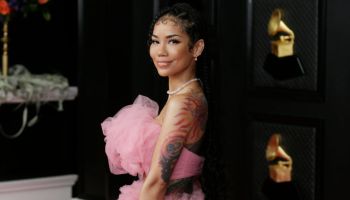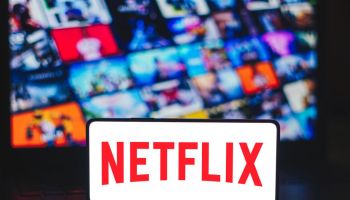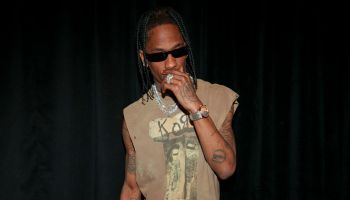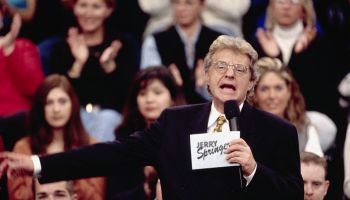Back when I was in grade school, as part of an integration program I was bussed out my neighborhood of Hollis, Queens to a predominately white school in another part of the borough. Being around kids who looked, spoke and dressed differently than me was a bit strange at first, but I quickly learned that my new classmates really weren’t all that different at all from my friends back in Hollis. As any teacher can tell you, 10 year old boys are pretty much the same all over the world.
Today, I can see having to integrate into a seemingly alien culture taught me how to be comfortable around people from different backgrounds. Indeed, I consider the confidence that I can always find common ground with people from all walks of life to be one of my most valuable tools in life.
But over forty years after being bussed out of Hollis, when I look out at our allegedly “post-racial” society, I still see a need for a re-newed commitment to integration. This is particularly true in regards to the cultural marketplace, where many are still making the mistake of trying to put different groups into boxes, rather than acknowledge and celebrate our commonality.
[pagebreak]
Hip-Hop helped dispel the myth that black and white teenagers (or black and white lawyers or doctors, for that matter) have radically different tastes, interests many years ago.
When Run came on MTV and rhymed, “Calvin Klein/No friend of mine/ Don’t want nobody’s name on my behind,” it was a special moment. Every punk rocker, gay club kid, trailer park heavy metal head or b-boy who felt shut out or alienated from the whole designer jean craze now had someone not only telling them that it was ok, but there were a lot of other people who felt the same way.
The punk rocker and street kid were taught that they had nothing in common, but hip-hop let them know that just wasn’t true. When young people were able to do that from the trailer parks to the cul-de-sacs to Compton, they all shared the same aspirations and interests, they were able to clear up the racial stereotypes that had clouded their parent’s lenses.
[pagebreak]
What we must not lose sight of is that all the white, Asian or Indian teenagers who had their worlds turned upside down (for the better) by Run DMC or Public Enemy back in the 80s are all grown up now.
They might be worrying more about mortgages and parenting than what sort of jeans they’re wearing, but they still don’t want to let go of that connection. Some might even be approaching middle age, but they are still bonded together by not only by the music, but language, style and attitude of hip-hop.
I refer to this huge demographic as the “urban graduates,” and was reminded of just how real a phenomenon they are the other day when I watching Matthew McConaughey in The Lincoln Lawyer. If you saw the movie, he played a five hundred dollar an hour attorney who liked to drive around blasting Eric B and Rakim and Eric Sermon. His character was a powerful, established attorney, but listening to him listening to Rakim was as natural as breathing air, because that’s who he grew up on.
A more stereotypical and less nuanced screenwriter would have had him listening Rolling Stones, but this one knew it had to be Rakim, because Mick Jagger would have been who his parents listened to! For me, that scene of Matthew blasting “Don’t Sweat The Technique” was one of the most truthful scenes I’ve seen come out of Hollywood in some time and served as a very vivid reminder of just how real urban graduates are.
[pagebreak]
Unfortunately, the “old boys club” has largely turned a blind eye towards these urban graduates and failed to make sure that their voices, especially African-American ones, are heard loudly in the corporate structure. Instead of focusing on growing with urban graduates as they evolve and expand, both in their tastes and purchasing power, they’re repeating the same mistakes made by those 25 years ago who said that rap would never find a home on MTV, or become popular with “mainstream” America.
So many organizations act like these culture bonds don’t exist, even though the truth is that they’re not only there, but stronger than ever!
Failing to address this integration hurts in two main ways. The first is that companies operating in the cultural marketplace which don’t seek out and the carefully listen to African-American voices never reach their true potential.
The simple fact is that African-Americans have disproportionately large role in setting Americans tends. They are America’s premiere taste-makers, truly affecting what sort of car people drive or music they listen to or what they watch on TV.
If you were in charge of one of those industries, wouldn’t you want a taste-maker playing a crucial role in your organization? So that you could be in front of the next trend, instead of always playing catch up? I’m amazed at how much money allegedly savvy businessmen cost themselves by not addressing this cultural shift.
The second problem is that the lack of integration tends to “ghettoize” African-American entrepreneurs and creative types. Too many African-Americans possess a universal vision and message, yet still feel their best shot at success still lies in only targeting “black folk.” It’s a belief that is not only bad for business, but bad for our culture as well.
[pagebreak]
Certainly focusing on the African-American market can be very fruitful. But if you have an idea that would also appeal to the larger mainstream market without sacrificing your integrity, then why wouldn’t you share it with everyone?
Why should an African-American entrepreneur feel limited to focusing on three percent of the American economy? They are American, after all. Why should their input be segregated from the other ninety seven percent of the opportunity out there? Especially when you consider that out of that three percent that represents the African-American market, half of those people feel patronized by products that are targeted to them.
So you’re really talking about one and a half percent of the American pie, which is not nearly a big enough slice, especially considering how much cultural influence African-Americans have on the rest of the country. Now to be clear, I’m not knocking BET, TV-1, Essence, Jet or any other company or individual that caters mainly to a black audience.
I love what they do and it seems like only yesterday that they provided the only way to speak to African-Americans, who had been completely excluded form the national conversation. That’s why rather than dismantle what they’ve created, we need to build even higher on it.
I love that black culture has a home on BET or TV1, but I also know that two networks for eighty million households means the community is still dramatically undeserved. We need more networks where African-Americans are engaged and acknowledged, but without being segregated. Where all urban graduates—black, white, Asian, whoever—know that rather than pandering, there will be an honest attempt to address their tastes, interests and inputs into the mainstream.
[pagebreak]
I remember when Carson Daly was on MTV playing the same hip-hop videos that were on BET, black kids preferred to watch his show. Why? Because the vast majority of people, no matter what their race or background, always prefer inclusiveness to segregation.
Everyone wants to feel like they’re part of the biggest thing happening, as opposed to be shut off in a corner somewhere.
And acknowledging this very basic aspect of human nature is a key to finding success in any creative field, whether it be television, fashion, music or websites. You simply can’t win anymore by segregating your audience.
To put it another way, Barack Obama isn’t the “black President,” he’s “THE President.” Just as we can see the universality (without compromising any of his blackness) in our President’s politics, we need to start viewing our cultural landscape in a similar fashion.
In fact, I created GlobalGrind in order to fill the vacuum created by those who still cling to the played out, segregated visions of the past. GlobalGrind speaks to this new America in a language that it understands, and provides foundation for of a new kind of media, one that looks at where America is culturally and where it’s going. Unlike so many other media organizations, which find it easier to reflect on the past.
Now to keep it 100 percent real, black executives also have a responsibility to make integration work. Just as I haven’t seen enough integration of the companies I’ve done business with, I’ve also seen too many black executives segregate themselves once they do manage to break into the corporate ranks.
[pagebreak]
Don’t get me wrong, I think it shows real genius to be able to pull yourself out of the hood, get into an Ivy League school and then land a choice job at a top TV network or record label or law firm. But don’t get there and then only look for other black Ivy league grads to hang out with it.
It’s true that African-Americans, even ones from Ivy League schools, are going to experience some insensitivity and even ignorance when they try to crack the old boys club.
The key, however, is not reacting to that insensitivity by retreating back to the comfort of hanging exclusively with “your own kind.’ It’s critical to continue to venture out of your comfort zone and expose yourself to as many ideas and relationships as possible.
This is because despite what they might teach you at business school, only a fraction of business is actually conducted in the boardroom. The majority of important deals take place on the golf course, over dinner, on vacation or after yoga! So if you’re not friendly enough with your white boss to go golfing with him, or be invited to your Asian boss’s family barbeque, or your Indian boss’s birthday party, you’re always going to be playing catch up.
Those are the settings where real partnerships are forged and you’ll only be present if you make a commitment to embracing people from all backgrounds and walks of life. Even those who on the surface appear to have very little in common with you.
[pagebreak]
Again, this doesn’t mean in order to penetrate the mainstream, African-Americans have to abandon their community, “sell out “ or God forbid, vote Republican:) It just means try to stay focused on the aspirations we all have in common, as opposed to what we perceive to be our differences.
Whether it’s on a personal or corporate level, I have to stress that the real winners are always those who integrate.
If I’ve learned one thing in over 25 years in the entertainment business, it’s that at the end of the day we all share similar dreams and aspirations. When we allow ourselves to be segregated into little cultural boxes, the air is sucked out of our best ideas and they end up suffocating before being able to fully bloom. But when we insist on breaking free of the cultural confines some would still impose on us and create content that speaks to everyone, not just “black folks” or “white people,’ then we truly become free to reach our greatest heights.















